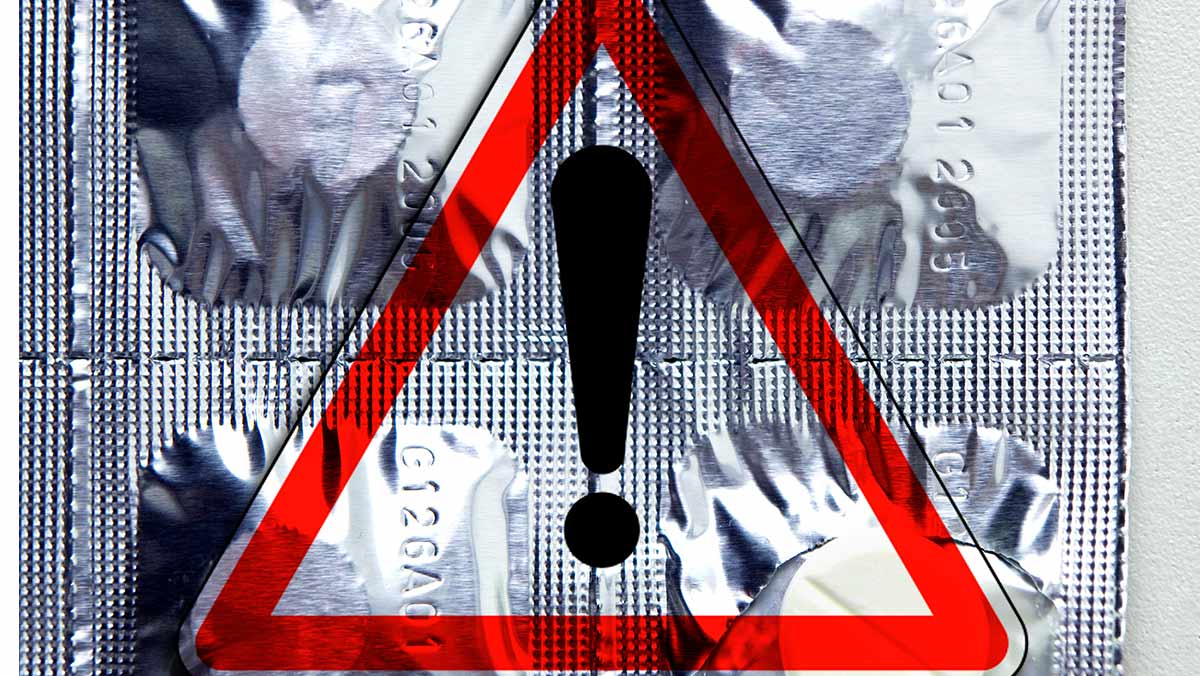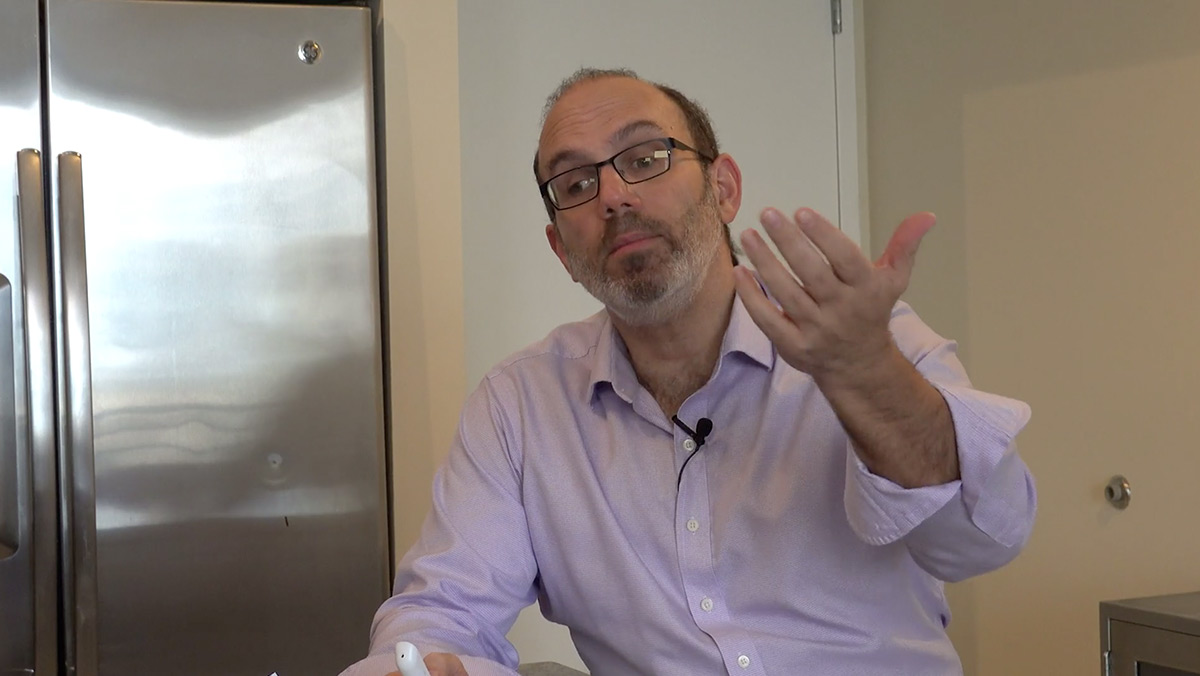Is blockchain a remedy for key pandemic issues?
Healing information silos with blockchain
A smart way to return to society
Enabling a rapid supply chain response to a pandemic dilemma
Addressing DSCSA requirements with blockchain
Verifying pharmaceutical products with AI and blockchain
Improving trust and empowering patients
How to get started with IBM Blockchain
Addressing critical industry challenges
Our IBM Blockchain experts
Addressing the world’s most pressing health challenges
3 min read
Is blockchain a remedy for key pandemic issues?
Even before the rise of the global pandemic, the healthcare and life sciences industries faced daunting challenges.
With the pandemic, new challenges and financial burdens have quickly risen to the top, including adapting supply chains to deliver much-needed protective equipment; rapidly developing and validating treatments, tests and vaccines; repatriating pharmaceutical supply chains; and addressing widespread counterfeiting.

$203B
in losses due to the pandemic were felt by US hospitals and health systems March–June 2020¹
140+
novel coronavirus vaccines are under development worldwide ²
80%
of active pharmaceutical ingredient manufacturers are located outside of the US
Exacerbated by the pandemic, issues surrounding data — including interoperability, transparency, error, privacy and security, regulations and how to give people access to their healthcare information — cut across all participants in the healthcare and life sciences ecosystems:
- The proprietary electronic health record (EHR) systems made by more than 700 vendors routinely don’t talk to one another⁴
- With data sharing, hospitals could save 950,000 lives and $93B over five years⁵
- Over 41 million patient records were breached in 2019, with a single hacking incident affecting close to 21 million records⁶
- Over 70% of leading life sciences executives surveyed cite inaccurate, misleading or incomplete information as a hindrance to decision making⁷
Blockchain, already demonstrating value in pre-pandemic healthcare and life sciences initiatives, is at the forefront of addressing challenges specific to the pandemic as well. Let’s examine how it does both.
Is blockchain a remedy for key pandemic issues?
Healing information silos with blockchain
A smart way to return to society
Enabling a rapid supply chain response to a pandemic dilemma
Addressing DSCSA requirements with blockchain
Verifying pharmaceutical products with AI and blockchain
Improving trust and empowering patients
How to get started with IBM Blockchain
Addressing critical industry challenges
Our IBM Blockchain experts
Making the case for blockchain solutions
1 min read
Healing information silos with blockchain
By providing faster access to trusted information, enabling secure permissioned data sharing across multiple stakeholders, improving collaboration and increasing transparency, blockchain can go a long way to helping address challenges across the healthcare and life sciences industries.
Click to see how blockchain is addressing data sharing and the pandemic
Click to see how blockchain is at work in the life sciences industry
Need blockchain basics? Get up to speed in 5 min with Blockchain 101
Is blockchain a remedy for key pandemic issues?
Healing information silos with blockchain
A smart way to return to society
Enabling a rapid supply chain response to a pandemic dilemma
Addressing DSCSA requirements with blockchain
Verifying pharmaceutical products with AI and blockchain
Improving trust and empowering patients
How to get started with IBM Blockchain
Addressing critical industry challenges
Our IBM Blockchain experts
Enable organizations to incorporate verifiable health passes into their business policies
3 min read
A smart way to return to society
How can we get back to business while prioritizing health and safety for our employees and customers?

Organizations who gather people together in groups – employees, visitors, and customers – are looking for ways to create verifiable health credentials, in a privacy-preserving manner.
IBM Digital Health Pass is designed to provide organizations with a smart way to bring people back to a physical location, such as a workplace, school, stadium or airline flight. Built on IBM Blockchain technology, the solution is designed to enable organizations to verify health credentials for employees, customers and visitors entering their site based on criteria specified by the organization.
Privacy is central to the solution, and the digital wallet can allow individuals to maintain control of their personal health information and share it in a way that is secured, verifiable, and trusted. Individuals can share their health pass to return to the activities and things they love, without requiring exposure of the underlying personal data used to generate the credential.
Here’s how IBM Digital Health Pass is designed to work:
- Issuing organization generates a verifiable credential (test results, etc.) and sends it to the individual
- Individual receives the credential and loads into their phone so they can share with a verifying organization
- Verifying organization checks the credential
*Issuing and verifying organizations need to be registered with the IBM Digital Health Pass platform.
“Trust and transparency remain paramount when developing a platform like a digital health passport, or any solution that handles sensitive personal information. IBM's steadfast commitment to data responsibility and putting privacy first is an important priority for managing and analyzing data in response to these complex times.”
- Eric Piscini, Global Vice President, Emerging Business Networks IBM Watson Health
Visit IBM Digital Health Pass to learn more
Is blockchain a remedy for key pandemic issues?
Healing information silos with blockchain
A smart way to return to society
Enabling a rapid supply chain response to a pandemic dilemma
Addressing DSCSA requirements with blockchain
Verifying pharmaceutical products with AI and blockchain
Improving trust and empowering patients
How to get started with IBM Blockchain
Addressing critical industry challenges
Our IBM Blockchain experts
Connecting new PPE and ventilator suppliers with buyers
2 min read
Enabling a rapid supply chain response to a pandemic dilemma
The Trust Your Supplier solution addresses the need to accelerate supplier onboarding, simplify management and reduce risk.

As the COVID-19 pandemic spread, overwhelmed healthcare providers and public health authorities scrambled to acquire the supplies and equipment needed to keep frontline teams healthy and safe. Emergency stocks were quickly consumed, supply chains struggled and bad actors emerged to inflate prices and offer counterfeit goods.
At the same time, heroes emerged on the supply side. Luxury fashion houses started making hospital gowns, car manufacturers built ventilators, distillers made hand sanitizer and small enterprises shifted gears to produce masks and shields. But how to get these suppliers into the healthcare supply chain?
Tapping into industry and blockchain expertise and the Trust Your Supplier solution, IBM launched an initiative to help health care providers rapidly onboard and vet these new suppliers. Moreover, the Trust Your Supplier network provides a fast, trusted way to connect healthcare procurement operations with qualified suppliers of all kinds of goods and services while simplifying supplier management and reducing procurement risk.
The need for consumable protective equipment and tests will be ongoing, as will lifecycle replacement of ventilators, respirators and the like—as well as everything else it takes to run a healthcare facility. Trust Your Supplier continues to reduce the burden by lowering supplier acquisition costs and lowering compliance risk.
Visit Trust Your Supplier to help accelerate supplier onboarding
Is blockchain a remedy for key pandemic issues?
Healing information silos with blockchain
A smart way to return to society
Enabling a rapid supply chain response to a pandemic dilemma
Addressing DSCSA requirements with blockchain
Verifying pharmaceutical products with AI and blockchain
Improving trust and empowering patients
How to get started with IBM Blockchain
Addressing critical industry challenges
Our IBM Blockchain experts
Speeding medication recall notification from days to seconds
2 min read
Providing a trusted single source for verifying medical licensure
Connecting the dots across the supply chain with a pharmaceutical utility network.

When a prescription drug or vaccine gets recalled, notifying everyone in the supply chain about the affected product can take as long as three days. Not good enough when people’s lives are at risk.
That’s why the Drug Supply Chain Security Act (DSCSA) calls for the pharmaceutical industry to build an electronic, interoperable track and trace system by 2023 that includes assigning unique digital IDs to product units (serialization). Blockchain technology, with its shareable ledger, immutable data and inherent ability to track drug provenance, is ideally suited for the task.
KPMG, Merck, Walmart and IBM joined forces in a Food and Drug Administration (FDA) pilot that successfully demonstrated a blockchain product traceability solution that reduced the medication recall notification process from days to seconds.
We all think that’s just the beginning. Blockchain and product traceability can be applied to cold chain logistics by using IoT sensors to track product temperature from source to final delivery, for example. A blockchain-integrated supply chain can also help address drug shortages and streamline processes to reduce inventory requirements.
Is blockchain a remedy for key pandemic issues?
Healing information silos with blockchain
A smart way to return to society
Enabling a rapid supply chain response to a pandemic dilemma
Addressing DSCSA requirements with blockchain
Verifying pharmaceutical products with AI and blockchain
Improving trust and empowering patients
How to get started with IBM Blockchain
Addressing critical industry challenges
Our IBM Blockchain experts
Using a unique digital twin of a product to thwart drug counterfeiting
2 min read
Verifying pharmaceutical products with AI and blockchain
Counterfeit drugs are a growing threat. Blockchain can help address that.

In North America alone in 2018, 1,750 incidents of pharmaceutical counterfeiting occurred, followed closely by 1,426 occurrences in Asia.⁸ With the rise of unregulated online pharmacies, clandestine laboratories and criminal networks, counterfeit drugs are becoming a global problem.
Sometimes they are easy to spot, with poorly printed labels and suspiciously low prices. But that’s not always the case.
A large US-based pharmaceutical company is using AI and blockchain to help ensure that its products are verifiable, with a high degree of accuracy. A high-resolution digital photograph is taken of each label during production. The image captures unique flaws invisible to the naked eye but recognizable by AI, creating a digital twin of the label.
This digital twin can be retrieved from the blockchain in the event that a product’s authenticity is called into question. Using AI, the digital twin and the suspect label can be compared — even if the real world label is damaged or dirty. This approach adds a new dimension to using blockchain to track and trace pharmaceutical products from manufacturing plant to patient.
Is blockchain a remedy for key pandemic issues?
Healing information silos with blockchain
A smart way to return to society
Enabling a rapid supply chain response to a pandemic dilemma
Addressing DSCSA requirements with blockchain
Verifying pharmaceutical products with AI and blockchain
Improving trust and empowering patients
How to get started with IBM Blockchain
Addressing critical industry challenges
Our IBM Blockchain experts
Collaborating to evaluate blockchain in clinical trials
2 min read
Improving trust and empowering patients
There is a tremendous need for trust and transparency around the complex trial process.

In Canada, Boehringer Ingelheim and IBM are working together to test whether blockchain technology can provide a decentralized framework for clinical trials that enables data integrity, provenance, transparency and patient empowerment as well as process automation.
Regulatory authorities have found that processes to ensure the quality of clinical trials are frequently inadequate, and clinical trial records are often erroneous or incomplete, which may put patient safety and interpretability of trials at risk.
The opportunity in leveraging blockchain technology lies in increasing trust and transparency among all stakeholders, especially when it comes to patient consent and data management. On a permissioned blockchain, patients are empowered to maintain control over their consent, allowing access only by authorized stakeholders.
Smart contracts can enforce that trial participation and data collection or sharing is done with valid consent, reducing administrative errors, providing transparency and increasing trust. Ultimately, the project goal is to test the effectiveness of blockchain technology in improving trial quality and patient safety at reduced cost.
Is blockchain a remedy for key pandemic issues?
Healing information silos with blockchain
A smart way to return to society
Enabling a rapid supply chain response to a pandemic dilemma
Addressing DSCSA requirements with blockchain
Verifying pharmaceutical products with AI and blockchain
Improving trust and empowering patients
How to get started with IBM Blockchain
Addressing critical industry challenges
Our IBM Blockchain experts
Now is the right time to build a blockchain ecosystem
3 min read
How to get starte d with IBM Blockchain
IBM expertise can deliver value for healthcare organizations and life sciences companies.

One of the overriding goals of healthcare and life sciences blockchain initiatives is enabling a 360-degree view of patient information and empowering the patient with control over who can see that information when. Another is to connect all participants in a supply chain ecosystem so that information and products can be tracked end to end, from origin to patient.
The stories you’ve been reading here are just the beginning of blockchain’s potential to improve the delivery of healthcare, speed the development of new lifesaving medications and vaccines — and address the unique challenges posed by the global pandemic.
Blockchain initiatives in this sector deliver value to all network participants. Their decentralized nature encourages cooperation while preventing centralized control — helping to improve trust and transparency across all relationships. That in turn can lead to newfound partnerships and even a network of networks, where established organizations and new entrants can unlock value in ways yet imagined.
With our deep history and expertise in healthcare, life sciences and blockchain, IBM is ready to bring networks like these to life. We have earned accolades from leading analysts for our blockchain for business leadership and our focus on the three most critical design points in achieving blockchain success: governance, business value and technology.
Wherever you are in your blockchain journey, turn to more than 1,600 IBM industry and technical experts with insights from 100+ live networks to answer the call of opportunity in today’s marketplace.
1,600
IBM industry and technical experts
100+
live blockchain network
Contact an IBM representative to schedule a free consultation
“Clients value IBM’s ability to bring an integrated services and solutions offering... Based on the analysis, IBM emerged as a leader.”
- Everest Group PEAK Matrix™ for Enterprise Blockchain Services 2020
Read the report (662 KB)
“...the flag bearer of enterprise blockchain with a significant number of live blockchain networks.”
- HFS Top 10 Enterprise Blockchain Services
Download the report
“IBM is clearly regarded as having the strongest credentials in the blockchain sector, well ahead of competitors.”
- Juniper Research Blockchain Enterprise Survey
Read press release
Is blockchain a remedy for key pandemic issues?
Healing information silos with blockchain
A smart way to return to society
Enabling a rapid supply chain response to a pandemic dilemma
Addressing DSCSA requirements with blockchain
Verifying pharmaceutical products with AI and blockchain
Improving trust and empowering patients
How to get started with IBM Blockchain
Addressing critical industry challenges
Our IBM Blockchain experts
Rising to the moment with blockchain: Healthcare and Life Sciences
1 min read
Addressing critical industry challenges
Blockchain can go a long way toward addressing critical industry challenges.
Blockchain can go a long way toward addressing critical industry challenges. Faster access to trusted information enables secure, permissioned data sharing between multiple stakeholders, improving collaboration and increasing transparency.
Is blockchain a remedy for key pandemic issues?
Healing information silos with blockchain
A smart way to return to society
Enabling a rapid supply chain response to a pandemic dilemma
Addressing DSCSA requirements with blockchain
Verifying pharmaceutical products with AI and blockchain
Improving trust and empowering patients
How to get started with IBM Blockchain
Addressing critical industry challenges
Our IBM Blockchain experts
About the authors
1 min read
Our IBM Blockchain experts

Mark Treshock
Blockchain Solutions Leader for Healthcare & Life Sciences, IBM
Mark Treshock is IBM’s Global Leader for Blockchain Solutions in Healthcare and Life Sciences. Mark has spent his career helping companies and their customers benefit from digital transformation, and is passionate about Blockchain’s potential to transform industries He has presented on how Blockchain and Analytics can bring transparency the pharmaceutical supply chain and combat the opioid crisis to the Office of American Innovation and the Office of National Drug Control Policy at the White House, and on Capitol Hill. Mark lives in New York and has a MBA from Cornell, a MS in Computer Science from Columbia University, a MPS in Interactive Media from New York University, and a BA from the University of Pennsylvania.
